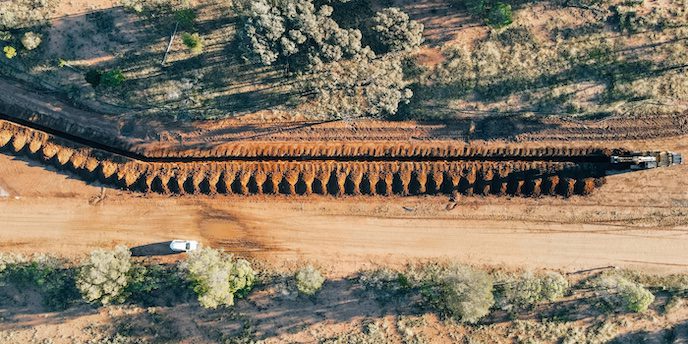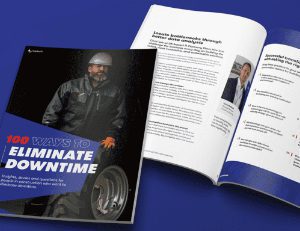

Here’s a question. Do you remember Y2K or, as it was sometimes known, the Millennium Bug? And do you remember how in the run up to the end of 1999 it so dominated business thinking that fears of doomsday scenarios of varying degrees regularly played out through the media?
The fear was premised on the fact that computers would not be able to cope with dates beyond December 31, 1999 causing a glitch that would crash the global economy. In the event, it turned out to be a damp squib. Nothing really happened and business continued on its merry way.
But in Australia, we’re well on the way in a transition to 5G that could actually have very real, business-critical outcomes to those who are not ready for the switchover.
Telecoms companies effectively have two options: repurpose 3G towers to 4G technology or completely rebuild towers to leverage 5G technology. But, whichever path they choose, any given business still dependent on technology provided by 3G towers after they close down, could effectively no longer be viable.
The deadlines for the switchover are already written in stone. Optus has been shutting its 3G towers since May 2022, Vodafone has confirmed shutdown for December 2023 and Telstra announced almost four years ago that it would be shuttering its 3G network by June 2024.
‘Those who’ve done their homework and are thoroughly prepped for the transition to 4G and 5G will emerge as winners.’
Quite enough time then you would argue for business to prepare, but, as other countries like Norway roll out extensions to give business an extra 12 months to get ready, there has in Australia grown an expectation that something similar will happen too.
It won’t. Government is supporting large telecoms companies to meet their deadlines and already, the shutting down of 3G towers is leading to blackouts. And, with a country that is so geographically spread like Australia, plugging the holes with satellite is not necessarily viable either, meaning the incidence of blackouts is likely to become an ever increasing problem.
That’s the doomsday scenario. Many essential services could suffer. Businesses could fail. And naturally, construction won’t be able to skirt these negative outcomes either. But those who’ve done their homework and are thoroughly prepped for the transition to 4G and 5G will emerge as winners and will be ready to embrace the benefits that will come from the switchover.
Of course, it’s important that we are clear what it is about 5G that makes it so transformative. It is, first and foremost, a platform for entirely new innovations. While 4G’s increased speed and capacity have accelerated the app economy and mobile video, 5G is creating never-before-seen opportunities for people and businesses.
With speeds of up to 100 times higher than 4G and increased availability of over 1 million connections per square kilometer, this hardly needs expanding on. But in conjunction with the development of telemetry technologies, it will deliver yet more data-rich insights. And with the expansion of telemetry as an industry locally, only 4G and 5G will have the bandwidth to support the exponential growth in data flows.
And the benefits are very real, particularly given Australia’s geographical scope. The requirement to report in real-time in construction is becoming ever more critical so that business is fully in control of what is happening across their fleets, their job sites, their machinery and their people. When job sites are remote, as is so often the case in Australia where so many activities take place in the continent’s sometimes wild and often barren hinterland, the boost in connectivity will really be a game changer.

And from a business perspective, and despite the initial investment hit that companies will face, it will be worth it. Let’s take sustainability as one area here. The level of insight available will in time help businesses to have sustainability development goals that meet criteria for government-mandated, environmentally-friendly projects that stipulate stringent emissions reporting data as a ‘must-have’ to win contracts.
It will also enable OEMs, fleet owners and contractors to become even better at managing their machines enabling increasingly sophisticated fuel-management systems, better understanding of how and when their machines should be working and when they should be heading to the repair shop, and plotting out their machine utilization strategies across different sites more effectively.
It is, in effect, diagnostics taken to a whole new level.
In a country where safety is taken very seriously, that level of insight would be invaluable and would almost certainly help reduce accidents on the job site, reduce the threat of lawsuits and keep construction companies on the right side of regulators who put workers’ welfare, quite rightly I should add, at the top of their agendas.
Another obvious beneficiary too should be the industry-wide battle against downtime and, as that dynamic also aligns with bottom-line considerations, it helps to create a near-perfect ecosystem of cost savings and sustainability-led actions that should in time help propel that momentum further and faster forward.
And for businesses that rely on connectivity, 5G will inevitably foster an environment where IoT devices will prosper and give businesses a far richer, data-led level of insight and learnings than could ever be hoped for under 3G. While it won’t spell the end of hardware, hardware devices predicated on 3G will have to be replaced so the incentive to become more IoT-device reliant will also get an enormous boost when 3G comes to an end.
Companies need to start on their transition as there’s not really a moment to waste. And, while many recognize the need to act, some Australian business are hoping for a 3G extension that will never happen. They are subsequently under-estimating just how costly it will be to transition late and how difficult it will be for their business after June 2024.
‘5G will inevitably foster an environment where IoT devices will prosper and give businesses a far richer, data-led level of insight and learnings than could ever be hoped for under 3G.’
It’s not a hopeless situation. Even if a business is 75-80% ready by June 2024, that could well be enough to get them through some early glitches and keep competitive while the rest of the business catches up. That’s very much a narrative that will require clever prioritization, really good budgeting, and a cold, hard look at what’s needed to get to the next stage. If done correctly, it should help them bridge the gap.
But if your business is all about connectivity, it really is a no-brainer. Lose the connection, and you might never get it back. No-one wants to flatline, but that’s the danger. And for any business in the digital era, it would be completely unpalatable.

Never miss an insight. We’ll email you when new articles are published on this topic.

